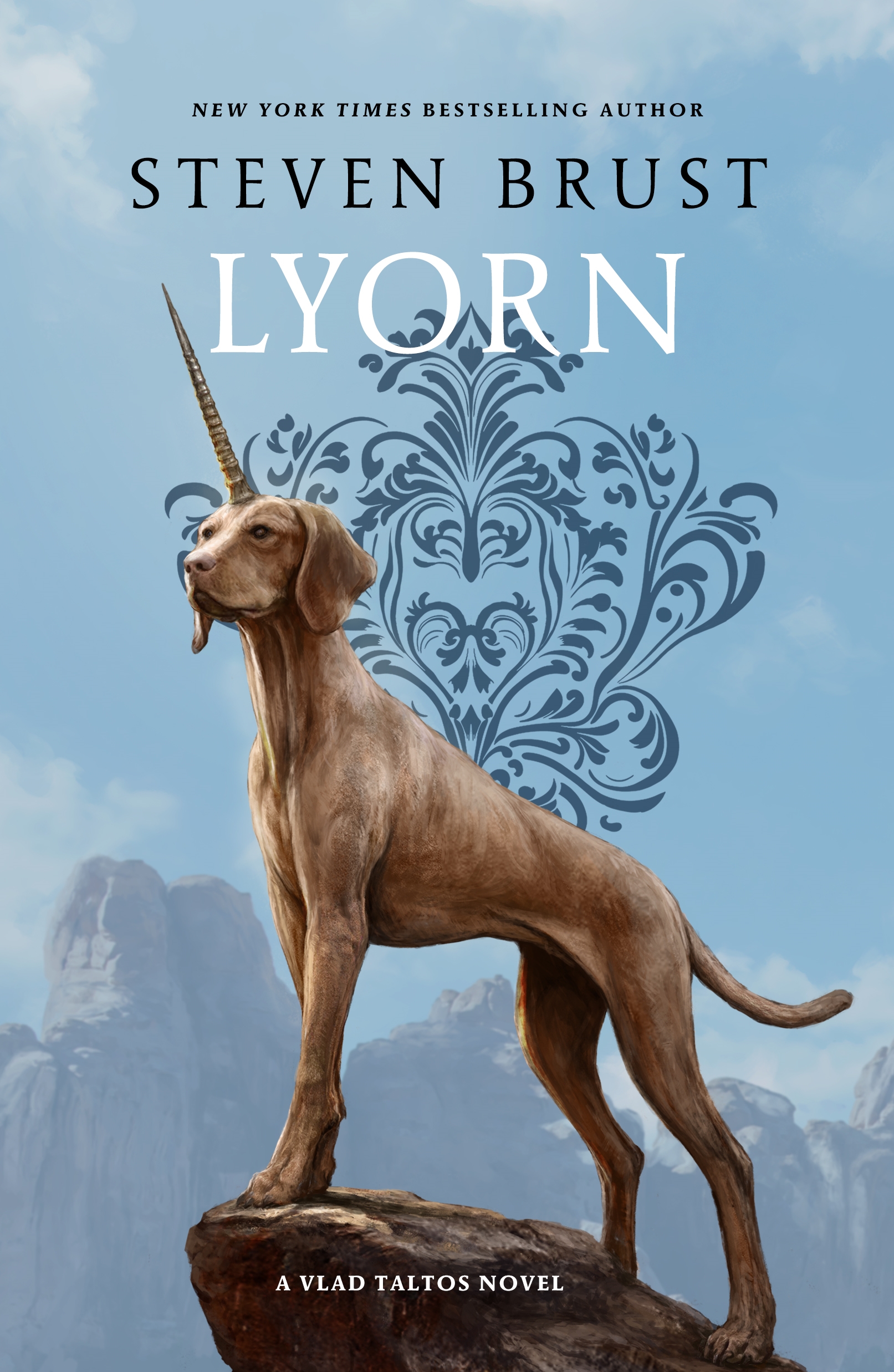Carson Chittom reviewed Lyorn by Steven Brust (Vlad Taltos, #17)
Not one to begin the series on
4 stars
Lyorn is the seventeenth and latest of Steven Brust’s fantasy novels about Vlad Taltos and his world of Dragaera. I’m not sure quite when I first read Jhereg, the first in the series, but judging by my memories of which library I checked it out from and the room I read it in, it must have been 1992 or 1993. Over the years I’ve read all the other novels (including another Dragaera series not featuring Vlad), many of them over and over again. They are books I keep repeatedly coming to, because I enjoy them and they reward rereading. I was never not going to read Lyorn.
Well, I’ve read it now. It was okay. These are just some initial thoughts which I haven’t thought about deeply.
I didn’t feel like the setting worked particularly well; it seemed forced like it had been “oh here’s a neat idea” …
Lyorn is the seventeenth and latest of Steven Brust’s fantasy novels about Vlad Taltos and his world of Dragaera. I’m not sure quite when I first read Jhereg, the first in the series, but judging by my memories of which library I checked it out from and the room I read it in, it must have been 1992 or 1993. Over the years I’ve read all the other novels (including another Dragaera series not featuring Vlad), many of them over and over again. They are books I keep repeatedly coming to, because I enjoy them and they reward rereading. I was never not going to read Lyorn.
Well, I’ve read it now. It was okay. These are just some initial thoughts which I haven’t thought about deeply.
I didn’t feel like the setting worked particularly well; it seemed forced like it had been “oh here’s a neat idea” that Brust then was stuck with after it’d worn out its welcome. The epigraphs (generally a Brustian strength!), clearly allusions to various songs from musicals in this case, were too long; and I found them boring: if they had points beyond the joke of filking real songs, I missed it, because after the first couple, I skipped them. In addition, several characters’ appearances seemed shoehorned in for no particular reason, or rather simply to check the box.
I did like some things: it was nice to see more of Deregar—and thereby to deepen Kragar’s character—and to be introduced to Nikka. The essential coldness of the Jhereg, both Left and Right Hands, as they pursue their goals, was absolutely on point: it gave them a more realistic presence. Vlad seemed less witty, but more honest, to himself and his interlocutors. The setup at the end gives me hope for the next book (there are supposed to be two more, I think).
If I were somehow reading this in a vacuum, I'd probably give it three stars ("fine, won't reread") but realistically and honestly, I'm going to reread it the next time I read the series, so it gets four.
Definitely not one to start the series on.

